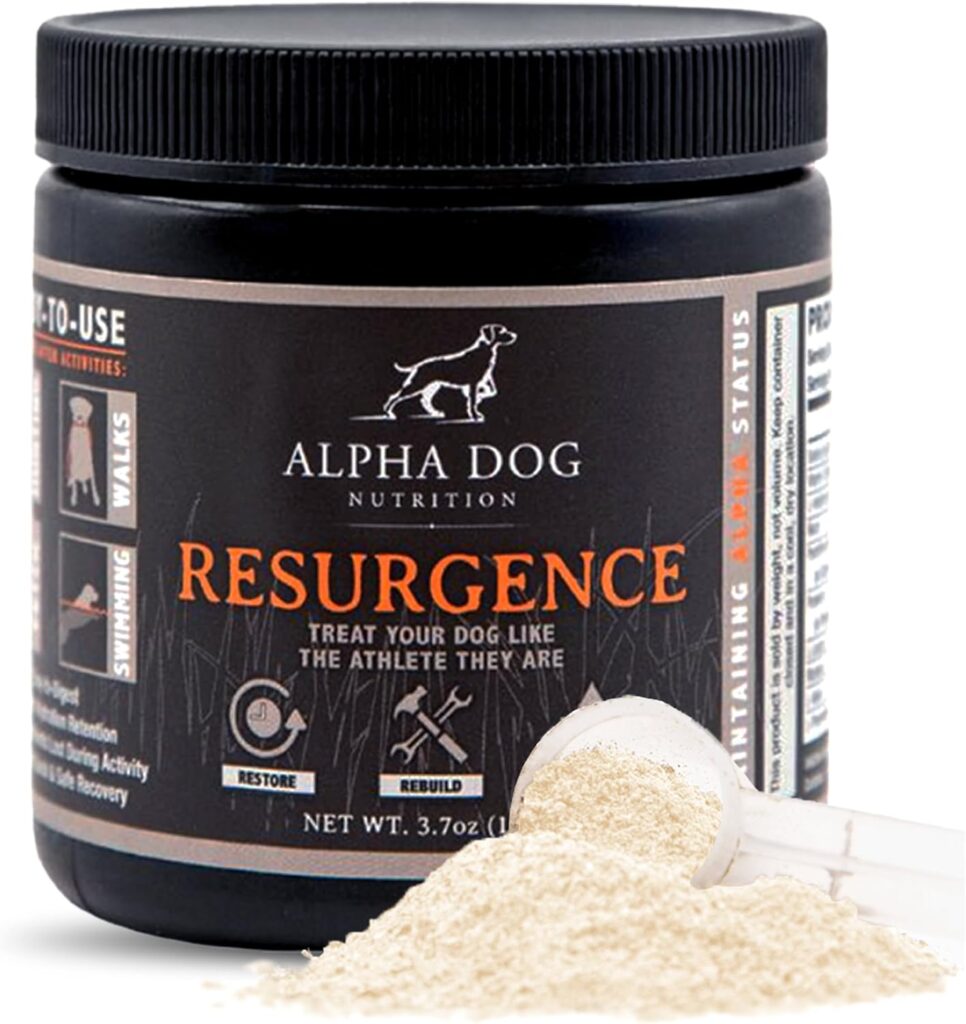Keeping your dog hydrated is as essential as feeding them the right diet.
Hydration plays a pivotal role in your pet’s health, influencing everything from kidney function to temperature regulation.
However, ensuring that your furry friend drinks enough water can sometimes be a challenge, especially during the warmer months or after strenuous activity.
In this blog, we’ll explore five effective ways to help your dog stay hydrated.
Whether you’re a new pet owner or a seasoned dog lover, these tips will ensure your dog stays hydrated and healthy.
Let’s dive in!
5 Ways To Rehydrate Your Dog
1. Dog Electrolyte Supplements
Just like humans, dogs can benefit from electrolyte supplements, especially if they’ve been extremely active or if they’re recovering from illness.
Electrolyte supplements are designed to replenish vital minerals like sodium, potassium, and chloride, which are essential for maintaining your dog’s fluid balance.
These supplements come in various forms such as powders, liquids, or treats.
My dog absolutely loves the new Resurgence Dog Electrolytes by Alpha Dog Nutrition.
The beef flavoring makes it irresistible, and it’s incredibly easy to incorporate into his daily routine, either as a water additive or a tasty food topper.
Not only does it help keep him well-hydrated, but it also boosts his stamina and aids in recovery after our long walks or play sessions.
The comprehensive blend of nutrients ensures efficient hydration and rehydration, particularly after those extra-active days.
Plus, the confidence that comes with the 60-day empty bottle guarantee and the fact that it’s PhD formulated and manufactured in the USA makes it a top choice for ensuring my dog’s health and hydration.
Simply mix one scoop for your dog and you’re good to go!
Always consult your veterinarian to choose a product that’s suitable for your dog and determine the correct dosage.
2. Fresh, Clean Water Available at All Times
The simplest yet most effective way to keep your dog hydrated is by ensuring they have constant access to fresh, clean water.
Change the water in their bowl at least twice a day, and consider multiple water stations in your home if you have a large house or more than one floor.
If your dog spends time outside, make sure there’s a water bowl available there as well.
3. Wet Food in Their Diet
Incorporating wet food into your dog’s diet is another excellent way to increase their water intake.
Wet dog food can contain up to 80% moisture, compared to 10% in dry kibble, making it a good source of hydration.
If your dog primarily eats dry food, try mixing in some wet food, or add water or broth to their kibble to make it more appealing and hydrating.
4. Water-Rich Treats
Offer your dog treats that contribute to their daily water intake.
Cucumber slices, watermelon chunks (seedless), and homemade broth popsicles are great options that most dogs love.
Not only do these treats help with hydration, but they are also low in calories, making them a healthy choice for maintaining your dog’s weight.
5. Routine Monitoring and Encouragement
Sometimes, dogs may need a bit of encouragement to drink enough water, especially if they’re older or naturally less inclined to drink.
Pay attention to your dog’s hydration by checking their water bowl frequently and noting how much they drink.
Encourage them to drink more by leading them to the water bowl throughout the day, particularly after meals or playtime.
If you notice signs of dehydration (like dry gums, lethargy, or excessive panting), consult your veterinarian immediately.
By following these tips, you can ensure your dog remains hydrated, healthy, and happy. Remember, water is just as vital for your furry friends as it is for you, so never underestimate the importance of keeping them well-hydrated.
Thank you for reading!
Affiliate Disclosure
Some of the links on this site are affiliate links. This means that if you click on the link and purchase the item, we may receive an affiliate commission at no extra cost to you. I only recommend products or services that I believe will add value to my readers, however some (not all) do pay us to be on this blog. Your support and theirs helps keep this blog running, and I genuinely appreciate it.
Medical Disclaimer
The information provided on this website is for educational purposes only and is not intended as medical advice. This blog or the writer is not a licensed healthcare professional, and the content should not be used as a substitute for professional medical diagnosis, treatment, or advice. Always consult with your physician or other qualified healthcare provider before starting any new treatment or making any changes to your healthcare routine.
